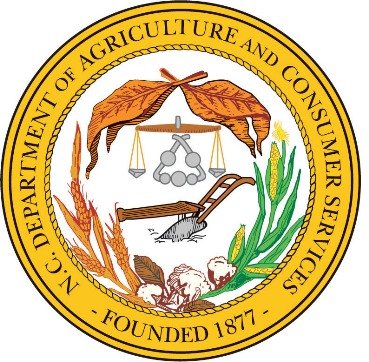Aug 24, 2021Post-flood cleanup, disposal help for pesticides set in North Carolina
As floodwaters recede and cleanup continues in western North Carolina, the N.C. Department of Agriculture and Consumer Services urges farmers and homeowners to evaluate pesticides and other chemical storage areas.
“If your pesticide or fertilizer storage area was underwater because of flooding, materials could be damaged, leaked or spilled,” Agriculture Commissioner Steve Troxler said in a news release. “There are ways to safely handle and remove these chemicals. Do not mix chemicals when cleaning up due to potential reactions. A good rule of thumb is to keep solids separate from liquids and keep unlike chemicals separate.”
Disposal assistance is available through the Pesticide Disposal Assistance Program. “Due to Tropical Storm Fred and flooding, we are revising pesticide collections based on assistance needs,” said pesticide disposal specialist Derrick Bell. “Dates may be added for the western part of the state to aid with storm cleanup and general collection.” The link to the collection schedule is https://protect-us.mimecast.
Listed below are guidelines to follow when cleaning up chemicals in flooded areas.”
- Safety: If you suspect your pesticide storage area has flooded, use caution in investigating the area. Wear personal protective equipment such as chemical-resistant gloves, rubber boots, protective clothing and eyewear.
- Assess the area and contain the spread: Evaluate and identify the problem areas and use absorbent materials to contain the spread of the spill.
- Cleanup: After stabilizing the area, begin cleaning it up. It is important that cleanup be prompt, but also safe. Things to consider include identifying a place to temporarily store the flooded material before ultimate disposal and plans for how to dispose of the pesticides. Make sure this temporary site meets proper pesticide storage regulations and keeps products out of the weather. Do not load all chemicals into one bin or container. This could not only create safety concerns and adverse chemical reactions, but it could create response delays and increase disposal cost.
The Pesticide Disposal Assistance Program of NCDA&CS will provide information and assistance with material disposal. Information on PDAP is online at https://protect-us.mimecast.
PDAP is paid for through funding from the General Assembly and the Pesticide Environmental Trust Fund. This trust fund receives money from registration fees that companies pay on pesticide products sold in the state. More than 4.25 million pounds of pesticides have been collected through the program since its inception in 1980. In 2019, the program set a record by topping 208,000 pounds collected in a calendar year. The second half of 2020 also set a record for the most pounds collected in a six-month period.

















